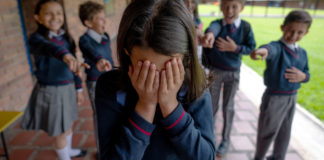Fast fashion: a parade of lies
Not only are they all brands of the same Spanish manufacturer, Inditex, but they are all part of the same trend that has revolutionised the fashion industry: fast fashion. The rise of this trend is based on two principles that have proven to be magnetic for consumers, especially young ones: clothes tailored to the latest trends (today on the catwalk, tomorrow in the...
Mothering in times of anxiety
The young generations of women raised with the ideal of the family in which the man and the woman are team partners, equal both at home and outside it, discover that their expectations have taken precedence over the real course of society. The most surprised are, unpredictably, women who are highly educated.
Escaping from a radical family: Tara Westover’s story
When she saw her brother suffocate from the pain of a work accident and her father still insist on treating him at home with herbs, Tara Westover understood, even though she was only a child, that her parents were making a mistake with incalculable consequences.
Some still believe in education
Is it worth fighting for a better world? Is it worth believing that, in a world relentlessly subject to the laws of entropy, hope, good thinking, beauty will still have the chance to develop and enrich our life horizon through education? Can tomorrow's world be better than today's, when everything we hear seems to be so catastrophic, and everything we do seems to...
Our resilience and the need to be “like little children”
Every day, we are surrounded by the resilience of developing characters and it’s almost impossible not to be touched by their beauty and fragility.
Bullying: Effective strategies to put an end to it
Children who fall prey to bullying cannot save themselves, just as the children who have become accustomed to bullying others will not give up this behaviour without outside intervention. As the phenomenon of bullying spreads, with harmful consequences on children's development, the need to know and apply strategies to combat it is becoming more pressing.
The wellness expert amateurs who sickened us
In Europe, few people know Gwyneth Paltrow as anything other than an American actress. In the United States, however, her "modern lifestyle" wellness brand called goop is growing her reputation—in a negative way.
Strategies for managing children’s digital behaviour
Parents have a crucial role in managing their children's digital behaviour, as well as preventing and detecting addiction. Their success depends on their own relationship with digital devices.
The secrets of a successful failure
Few books about management can be read with as much pleasure as a novel, because few are as pleasantly written. Donald Keough's book[1] falls within this exclusive bracket. It is a book about business management and, strangely, was written for people who want to fail in this field, but do not know how.
Money and the inevitable worrying about tomorrow
The love of money may be the root of all evil, but the need for money cannot be subjected to a harsh moral judgment.
Saving creativity
An experimenter is like a hunter who, instead of waiting quietly for game, tries to make it rise, by beating up the locality where he assumes it is. – Francis Bacon, 17th-century English philosopher
How can we protect our children from the dark side of the internet?
Early exposure to technology helps children accumulate information quickly, opening up new ways for them to understand the world. At the same time, however, the online environment can put many of its most vulnerable users at risk.
My child, a perfectionist
Responsible, achievement-oriented and highly principled – this is what a brief portrait of a perfectionist child looks like, explaining why, up to a certain point, this is the kind of child most parents dream of.
#SELFCARE for Christians
The concept of self care—defined as the entirety of ways in which a person understands how to solve their emotional problems and manage their anxieties—has become a real movement in the past two years with an entire industry ready to make our lives easier and more comfortable. For Christians, however, this trend has proven to be quite problematic: making our lives easier is...
How to make sure we have a rational faith
Fundamentalist movements, extremist and sectarian religious beliefs, manipulations of the mass of believers, conspiracy theories within religious sects, and other such threats, emphasise the need for critical thinking.


























